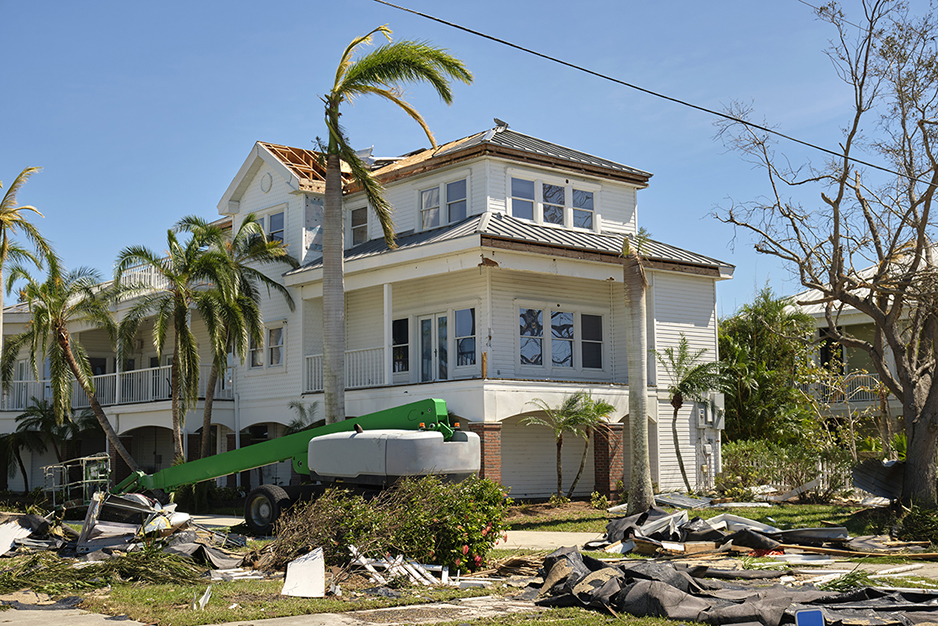Battling Against Bad Faith: When Should You File an Insurance Lawsuit?
Most people believe that when their property suffers loss and damage from an event covered under their homeowners’ policy, their insurance company will treat them fairly. This misconception can cost you thousands of dollars when settling insurance claims. Insurance companies frequently delay, deny, or undervalue claims - and otherwise engage in unfair trade practices in their claims handling.
Hiring a property damage attorney is the first step to an equitable insurance lawsuit resolution. The attorney will gather evidence, handle negotiations, and ensure your settlement comports with Florida's insurance laws and your policy.
Florida law regarding litigation rules for insurance claim disputes and attorney fees experienced changes in 2019, 2021, 2022, and 2023. Effective negotiating requires an understanding of your policy and the governing insurance legislation, including when to file an insurance lawsuit and a bad faith claim.
If you believe you have been damaged by acts of your insurance company you may file a Civil Remedy Notice which gives the insurer 60 days to remedy their bad faith. In order to file a bad faith lawsuit against y our insurance company the court must first determine the insurance company breached their duties by failing to pay your claim. After the court agrees there is a breach, your attorney may file a bad faith litigation.
Navigating Bad Faith Litigation in Florida
An important component of Florida's insurance law is the requirement for policyholders to first secure a victory in an underlying lawsuit against their insurance carrier for breach of contract—such as denial or underpayment of a valid claim—before they can initiate a bad faith lawsuit.
Florida statutes stipulate that a bad faith claim can only proceed after a court has rendered an award or judgment against the insurer, confirming the insurer's failure to fulfill its contractual obligations. This legal stipulation is designed to ensure that the insurer's breach of duty is unequivocally established through the initial lawsuit's outcome. For policyholders navigating the complexities of insurance disputes, understanding this process is key, as the law aims to foster a balance between protecting the insured's rights and ensuring insurers are held accountable for their actions, thereby promoting fairness and integrity within the insurance litigation process.
Filing Deadlines
Changes to Florida property insurance claim rules in 2023 resulted in six companies going into receivership or leaving the state. One of the changes requires filing property damage insurance claims within one year.
The insurance companies are now required to perform an in-person inspection occurs within 30 days of the notice of loss to the carrier. Claims must be paid or denied within 60 days of filing.
Florida statute requires filing a lawsuit for property damage within four years. Insurance policies fall under contract law, which generally carries a five-year statute of limitations. Your property insurance attorney knows which deadline pertains to your case.
Insurance Company Good Faith Obligations
Every insurance company in Florida has a duty not to act in their company's interest when determining a settlement. State Farm Mutual Auto Insurance Co. v. Laforet, 658 So. 2d 55 (Fla 1995). The duty is known as exercising good faith or avoiding bad faith. To act in good faith, your insurance company must:
- Acknowledge your claim.
- Promptly investigate your claim.
- Reply to communications from you.
- Avoid needless paperwork to delay claim progression.
- Provide reasons for denying a claim or delaying the process.
Following denied insurance claims and court determination of an insurance company breach, your Florida property damage attorney may file a bad faith claim on your behalf.
Bad Faith Insurance Lawsuit
A first-party bad faith action occurs when the insurance company refuses to investigate a claim properly or doesn't justify nonpayment.
Florida Bad faith claims fall under Fla. Stat. 624.155(1), which states that any person may bring a civil action against an insurer when they suffer damages because of an insurer not acting in good faith to settle a claim.
The insurance company has 60 days to cure the bad faith violation. If they pay the funds due, the matter closes. Legal action may proceed if they do not resolve the bad faith claim.
We Understand Your Position
When an insurance company underpays or denies your claim, Knoerr Law Group will negotiate an equitable settlement. Founding attorney Linda Knoerr has been in your position. She experienced property loss and insurance claim challenges following Hurricane Andrew's damage to her Miami home.
This is why hiring Knoerr Law Group works to get you the best insurance lawsuit settlement possible. Schedule online or call 954-749-3151 to book a consultation.
‹ Back









